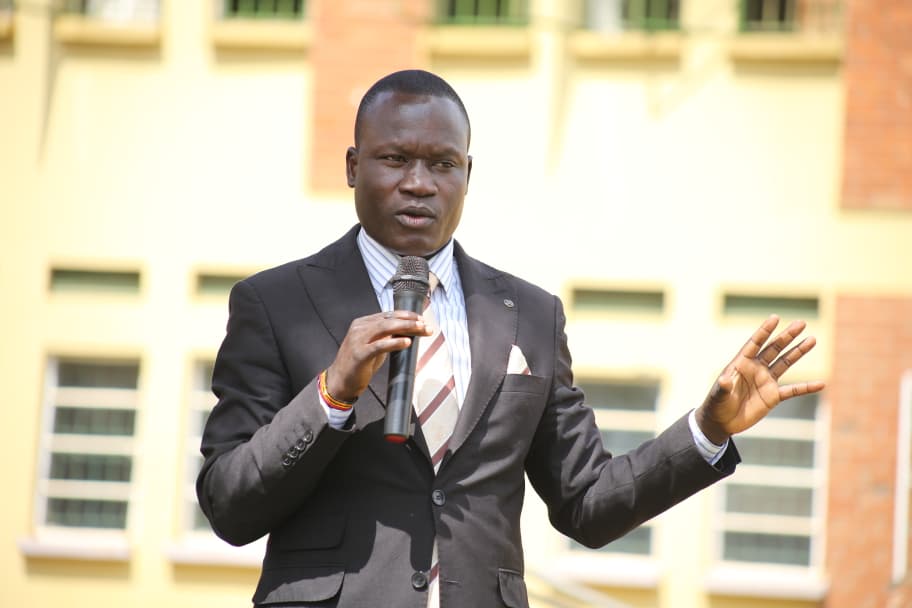Kumi District, Uganda – The Deputy Resident District Commissioner (D/RDC) of Kumi District, James Kyomya, is facing an onslaught of politically motivated allegations, not because he has failed in his duties, but because he has done his job with integrity, firmness, and results. Amid a storm of claims circulating in the media and online platforms, many local leaders and residents say Kyomya is being unfairly targeted for standing against corruption, enforcing accountability, and championing government service delivery.
Since taking office, Kyomya has been instrumental in the implementation of key government programs such as the Parish Development Model (PDM) and Emyooga. He has ensured that funds reach legitimate beneficiaries and not ghost groups, often personally verifying records and exposing irregularities. In various sub-counties, his efforts have helped struggling SACCOs receive fair treatment and funding without political bias.
In Kanyum Town Council, there was a case of land grabbing. Some individuals had planned to convert this public land into their private property. The Deputy RDC called for an audit to be carried out and summoned local leaders to a meeting.
Some members had already started constructing buildings on the disputed land. During this time, the Vice chairperson LC5 came with an envelope, presumably as a bribe, but Kyomya rejected it. These actions, including his refusal to accept bribery, have made him a target, with some now fighting for his transfer from the district.
In the recent arrest of the Assistant Engineer of Kumi District Local Government, a report had falsely indicated that road works under a UGX 1 billion road maintenance grant were completed and funds fully utilized. However, when the Deputy RDC, Kyomya James, and members of the District Security Committee conducted a joint monitoring and inspection, they were shocked to find that no work had been done on some of the roads reported as completed. Some roads were claimed to have received murram (gravel), but nothing was visible on the ground.
The team observed several instances of shoddy work, with community members testifying that these roads were causing daily accidents. This was in the presence of the district chairperson, who also acknowledged and regretted the situation. However, he surprisingly discouraged arrests, raising serious questions about why he would oppose action against those involved in the misuse of the road maintenance grant. It is widely believed that the district chairperson has been supporting this sabotage and corruption in the road works, which is why he doesn’t want those responsible to be held accountable.
Kyomya’s work in ensuring security, especially in combating cattle theft, has also gained wide praise. By coordinating with local security agencies, Kyomya helped dismantle criminal operations that had been stealing livestock across Kumi and surrounding districts. This brought much-needed relief to pastoral communities and reaffirmed government presence on the ground.
However, these achievements have earned him powerful enemies, especially among those whose influence depended on corruption, poor oversight, and political manipulation.
Among the most vocal critics is Mr. Olaboro, a self-proclaimed political activist, who has accused Kyomya of everything from targeting WhatsApp group administrators, interfering in local politics, intimidating striking teachers, to personally “conning” him of $600. But these claims remain unsupported by evidence, and no formal police complaint or court case has been filed to date. Legal analysts and observers across the district have called the accusations “baseless,” pointing out that such serious allegations require proper documentation, not media statements or political drama.
A senior civil servant in Kumi commented, “Olaboro is known for making noise when his political interests are threatened. These are classic deflection tactics by those who fear losing control. If he was really conned, why hasn’t he opened a case?”
On the teachers’ strike, Kyomya’s position was consistent with government policy. He questioned why learners were being sent home despite teachers continuing to receive salaries. His statement, “As I speak now, all our teachers have been paid for their service, and I wonder why the government continues to pay them salaries when learners are missing lessons,” was not an attack on teachers, but a plea to prioritize learners.
He further challenged why some of the worst-performing schools were leading the strike, asking, “Striking for what, when you can’t even produce a single Division One in your school?” His message was clear: the government is investing in education, and learners should not suffer because of ongoing national negotiations on salary disparities. His remarks sparked debate, but also earned support from parents and education officials who fear long-term damage to student performance.
As for claims of political interference during elections, multiple NRM leaders have confirmed that Kyomya remained neutral, facilitated peaceful engagement between rival camps, and encouraged issues to be resolved through party tribunals. In fact, it was his impartial stance that helped de-escalate tensions during the last NRM primaries in the district.
Kyomya’s efforts to mobilize NRM structures, bring together local leaders, and restore order in district leadership meetings have also rattled those who once benefited from division and chaos. Some now use the arrival of a new RDC to call for Kyomya’s removal, hoping to discredit him through public pressure and unsupported allegations.
But for many in Kumi, Kyomya’s track record speaks louder than his critics’ claims. “He visits our projects, he fights corruption in SACCOs, and he blocked people who wanted to eat road construction money,” said a youth chairperson in Ongino. “The reason they are fighting him is because he fights corruption, and they fear that.”
To date, no formal charges have been brought against Kyomya, and the allegations remain unverified. While critics continue to use the media to circulate claims, none have followed up with legal action or provided evidence to investigating authorities. His office remains operational, and he continues to coordinate with district leadership under the new RDC.
The bigger truth is this: Kyomya is being targeted not because he is corrupt, but because he has stood firmly against corruption, impunity, and political manipulation. In a district long plagued by misuse of funds, ghost programs, and weak accountability, his approach has restored some order—and in doing so, angered those who once benefited from chaos.
Instead of being removed, James Kyomya should be recognized for his role in defending public resources, promoting education, fighting criminality, and restoring trust in government systems.




























